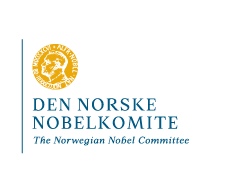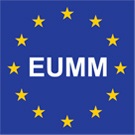 The Norwegian Nobel Committee has decided that the Nobel Peace Prize for 2012 is to be awarded to the European Union (EU). The union and its forerunners have for over six decades contributed to the advancement of peace and reconciliation, democracy and human rights in Europe.
The Norwegian Nobel Committee has decided that the Nobel Peace Prize for 2012 is to be awarded to the European Union (EU). The union and its forerunners have for over six decades contributed to the advancement of peace and reconciliation, democracy and human rights in Europe.The High Representative of the Union for Foreign Affairs and Security Policy and Vice-President of the Commission, Catherine Ashton stated:
"I am delighted at the news that the European Union has been awarded the 2012 Nobel Peace Prize, in recognition of its work on reconciliation, democracy, promotion of human rights and in enlarging the area of peace and stability across the continent.
In the countries of the EU, historic enemies have become close partners and friends.
I am proud to be part of continuing this work. The creation of the European External Action Service has enabled us to develop a comprehensive approach to better promote Europe’s core values throughout the world.
I will continue to work tirelessly to drive this process forward."
In a joint statement the President of the European Council Herman Van Rompuy and the President of the Commission José Manuel Barroso said "At its origins the European Union brought together nations emerging from the ruins of devastating World Wars – which originated on this continent – and united them in a project for peace. Over the last sixty years, the European Union has reunified a continent split by the Cold War around values of respect for human dignity, freedom, democracy, equality, the rule of law and respect for human rights."
Noting its collaboration with the United Nations, Secretary-General Ban Ki-moon today congratulated the EU for being awarded the 2012 Nobel Peace Prize, stressing its role in helping to build peace, promote human rights and support economic and social development across the world.
“Today, an indispensable partner to the United Nations has been given a richly-deserved recognition of its accomplishments and its importance in Europe and around the world,” Mr. Ban said in a statement.
US Secretary of State Hillary Clinton also congratulated the EU saying the Nobel Peace Prize reflected the blocs hard work in striving for unity.
"Let me congratulate the European Union on its Nobel peace prize. Certainly its quite remarkable to see how unified and peaceful Europe is in the 21st century and that did not happen by coincidence," Clinton said. "It happened because of the very hard work and dedication of leaders and citizens across Europe," she added
In the inter-war years, the Norwegian Nobel Committee made several awards to persons who were seeking reconciliation between Germany and France. Since 1945, that reconciliation has become a reality. The dreadful suffering in World War II demonstrated the need for a new Europe. Over a seventy-year period, Germany and France had fought three wars. Today war between Germany and France is unthinkable. This shows how, through well-aimed efforts and by building up mutual confidence, historical enemies can become close partners.
In the 1980s, Greece, Spain and Portugal joined the EU. The introduction of democracy was a condition for their membership. The fall of the Berlin Wall made EU membership possible for several Central and Eastern European countries, thereby opening a new era in European history. The division between East and West has to a large extent been brought to an end; democracy has been strengthened; many ethnically-based national conflicts have been settled.
The admission of Croatia as a member next year, the opening of membership negotiations with Montenegro, and the granting of candidate status to Serbia all strengthen the process of reconciliation in the Balkans. In the past decade, the possibility of EU membership for Turkey has also advanced democracy and human rights in that country.
The EU is currently undergoing grave economic difficulties and considerable social unrest. The Norwegian Nobel Committee wishes to focus on what it sees as the EUs most important result: the successful struggle for peace and reconciliation and for democracy and human rights. The stabilizing part played by the EU has helped to transform most of Europe from a continent of war to a continent of peace.
The work of the EU represents "fraternity between nations", and amounts to a form of the " peace congresses" to which Alfred Nobel refers as criteria for the Peace Prize in his 1895 will.
